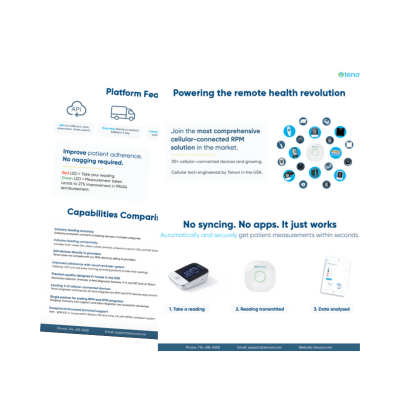Ongoing research in remote therapeutic monitoring (RTM) is evaluating its role in addressing challenges in stroke rehabilitation and long-term care. RTM merges connected technology with clinical care strategies to support stroke patients throughout their recovery. It offers potential solutions to concerns such as treatment adherence, medication adherence, delayed intervention, and limited visibility into at-home progress.
RTM uses technology that collects non-physiological data related to the musculoskeletal and respiratory systems. It tracks symptoms, treatment and medication adherence, and other health indicators for patients managing musculoskeletal, neurological, and respiratory conditions and those recovering from surgery.
In this article, we’ll explore remote therapeutic monitoring research related to stroke management and how it may improve adherence, reduce the risk of recurrence, and support more effective rehabilitation. We’ll also look at the broader implications of RTM for healthcare delivery and what the future may hold for this promising approach.
Remote Therapeutic Monitoring Research
Stroke remains a leading cause of disability and death worldwide. According to the CDC, about 87% of all strokes are ischemic strokes, which occur when blood flow to the brain is blocked. One of the significant hurdles in delivering care at home for stroke rehabilitation is the ability to monitor patients’ safety, treatment efficacy, and adherence to prescribed regimens.
Remote therapeutic monitoring research published in Medical Data Mining found that RTM interventions can effectively enhance compliance with doctors’ advice among patients with ischemic stroke. The meta-analysis reviewed data from 10 clinical trials involving 5,092 patients. It reported a 34% increase in patient compliance when remote therapeutic monitoring was employed with wearable sensors, mobile apps, or remote check-ins.
RTM interventions were associated with a significant reduction in stroke recurrence (relative risk: 0.42) and moderate to severe disability (relative risk: 0.71) among ischemic stroke patients. The analysis also noted that RTM interventions significantly improved Fugl-Meyer motor function assessment scores (mean difference: 10.25) and the Barthel Index of activity of daily living (mean difference: 13.62) in ischemic stroke patients. These findings suggest that RTM with guidance can aid rehabilitation and enhance patients’ independence.
Understanding Remote Therapeutic Monitoring
Remote therapeutic monitoring is used fin different clinical situations from post-surgery recovery to chronic disease. RTM services are covered by Medicare, Medicare Advantage and some commercial plans. The following RTM CPT codes are used for coverage: 98975, 98977, 98980 and 98981.
RTM offers several benefits in stroke recovery care, including:
- Timely access to specialists: Stroke patients, especially those in remote or underserved areas, can receive prompt evaluations and consultations from stroke experts through video conferencing or remote monitoring.
- Improved monitoring and adherence: Platforms developed for RTM can provide reminders for medication adherence, track vital signs, and monitor rehabilitation progress, promoting better self-management and adherence to treatment plans.
- Reduced burden on healthcare systems: By enabling remote consultations and monitoring, solutions can reduce the need for hospital visits and admissions, thereby alleviating the burden on healthcare facilities and resources.
- Increased patient satisfaction: The convenience and accessibility of remote therapeutic monitoring research services can enhance patient satisfaction and improve healthcare experiences.
A collaborative approach that integrates traditional and remote healthcare services can optimize patient outcomes and ensure a comprehensive continuum of care. Whether your healthcare partners are interested in adopting remote monitoring to improve patient adherence to medication or treatment or creating a more efficient workflow, Tenovi can help. Book a free RPM demo today.


